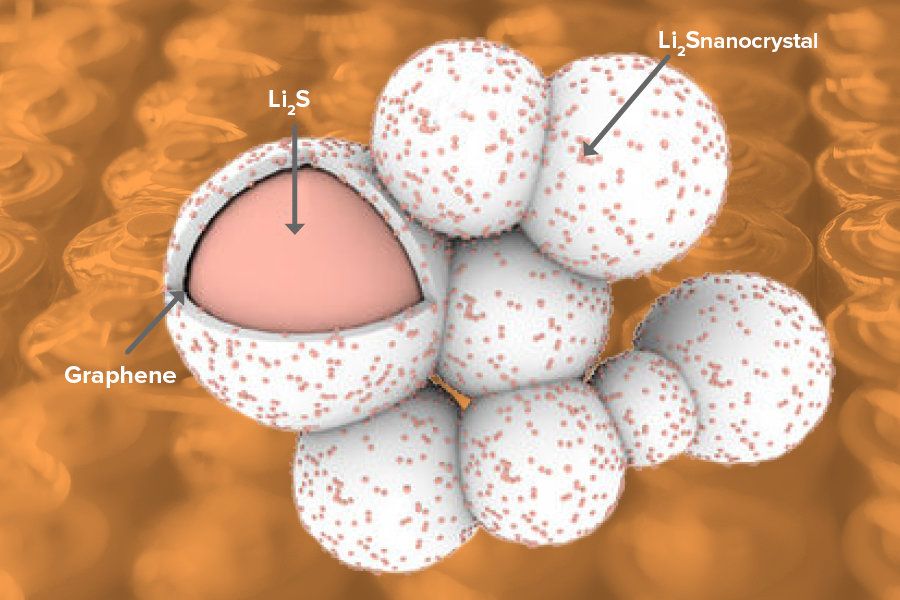Page 9988
Dec 26, 2017
How a Machine That Can Make Anything Would Change Everything
Posted by Klaus Baldauf in categories: biotech/medical, food, internet, solar power, sustainability
But the dream of the nanofabricator is not yet dead. What is perhaps even more astonishing than the idea of having such a device—something that could create anything you want—is the potential consequences it could have for society. Suddenly, all you need is light and raw materials. Starvation ceases to be a problem. After all, what is food? Carbon, hydrogen, nitrogen, phosphorous, sulphur. Nothing that you won’t find with some dirt, some air, and maybe a little biomass thrown in for efficiency’s sake.
Equally, there’s no need to worry about not having medicine as long as you have the recipe and a nanofabricator. After all, the same elements I listed above could just as easily make insulin, paracetamol, and presumably the superior drugs of the future, too.
What the internet did for information—allowing it to be shared, transmitted, and replicated with ease, instantaneously—the nanofabricator would do for physical objects. Energy will be in plentiful supply from the sun; your Santa Clause machine will be able to create new solar panels and batteries to harness and store this energy whenever it needs to.
Continue reading “How a Machine That Can Make Anything Would Change Everything” »
Dec 26, 2017
We looked at the major scientific discoveries from five years ago to see where they are now
Posted by Genevieve Klien in category: biotech/medical
Dec 26, 2017
Using drones to build the ambulance fleet of the future
Posted by Genevieve Klien in categories: biotech/medical, drones
It’s that time of year again. Sleigh bells overhead and our jolly, bearded benefactor wafting gifts down the chimney to eagerly awaiting hands. We’ve heard every version of this tale. Except, perhaps, the variant that is currently playing out in East Africa. In the funny way that magic tales and science fiction sometimes become reality, if you swap out sleigh bells for drones and gifts for emergency medical supplies, you’ve got the real world tale of Zipline, a company delivering 20% of national blood supply via drone in Rwanda. The Sequoia and A16Z-backed company recently announced it woul…
Dec 26, 2017
The Pentagon’s New Artificial Intelligence Is Already Hunting Terrorists
Posted by Dan Kummer in categories: drones, information science, military, robotics/AI, terrorism
After less than eight months of development, the algorithms are helping intel analysts exploit drone video over the battlefield.
Earlier this month at an undisclosed location in the Middle East, computers using special algorithms helped intelligence analysts identify objects in a video feed from a small ScanEagle drone over the battlefield.
A few days into the trials, the computer identified objects — people, cars, types of building — correctly about 60 percent of the time. Just over a week on the job — and a handful of on-the-fly software updates later — the machine’s accuracy improved to around 80 percent. Next month, when its creators send the technology back to war with more software and hardware updates, they believe it will become even more accurate.
Continue reading “The Pentagon’s New Artificial Intelligence Is Already Hunting Terrorists” »
Dec 26, 2017
Physicists Track ‘Secret’ Particles, Thought Impossible
Posted by Genevieve Klien in category: particle physics
Dec 26, 2017
The biggest scientific breakthroughs of the year, now in video form!
Posted by Derick Lee in categories: innovation, physics

Each year, Science’s editors and writers highlight a top research achievement as their Breakthrough of the Year. For 2017, the honor goes to the first full observation of a neutron-star merger, made possible by detecting gravitational waves created by the stars as they spiraled into each other. But there a lot of other advances to talk about, from the oldest ice to the newest ape. Check them all out in this video rundown.
A video compilation of some of the biggest advances of 2017.
Continue reading “The biggest scientific breakthroughs of the year, now in video form!” »
Dec 26, 2017
Graphene unlocks the promise of lithium sulfur batteries
Posted by Saúl Morales Rodriguéz in categories: energy, materials
Many battery scientists are interested in the potential of lithium sulfur batteries because, at least in theory, they offer a high energy density at relatively low cost. However, lithium sulfur batteries face a number of challenges, including the low electrical conductivity of sulfur and the tendency of the cathode to expand significantly in size during the discharge cycle—a tendency that prevents the cathode material from being packed as densely in the battery as scientists would like.
To combat these problems and bring lithium sulfur batteries closer to reality, researchers at the U.S. Department of Energy’s (DOE) Argonne National Laboratory, the University of Illinois at Chicago (UIC) and Oregon State University have developed a new cathode material made of lithium sulfide that is encapsulated by graphene.
To make the cathode material, Argonne chemists Jun Lu and Khalil Amine heated lithium metal and then exposed it to carbon disulfide gas, a common industrial solvent. The creation of lithium sulfide, as well as the graphene encapsulation, happened spontaneously.
Continue reading “Graphene unlocks the promise of lithium sulfur batteries” »
Dec 25, 2017
Back to Immortality
Posted by Montie Adkins in categories: biotech/medical, life extension

Currently have telomerase which can immortalize human cells in a petri dish. Currently we have stem cells and we can take regular cells even from someone who is 100 years old and we can deprogram the cells back to a pluripotent stem cell state. This is effectively de-aging the cells. There is an effort by some researchers (not Dr West) to achieve partial reprogramming of cells. This would be to use the reprogramming mechanisms to de-age cells while retaining differentiation.
Dr West mentions in the fifth video that he strongly disapproves of current stem cell treatment centers.
Dec 25, 2017
Nuclear drones are not technically challenging and could fly for years
Posted by Klaus Baldauf in categories: drones, energy, military

https://youtube.com/watch?v=EaJ1RiQSt0g
China has put $3.3 billion into making new highly compact nuclear reactors which would also use for nuclear powered drones.
Continue reading “Nuclear drones are not technically challenging and could fly for years” »















